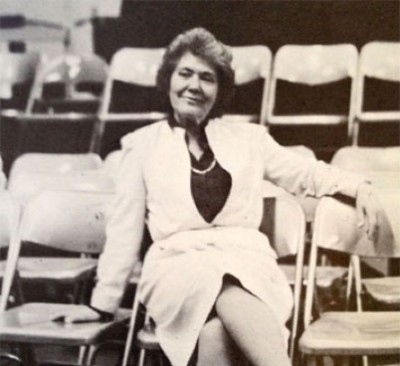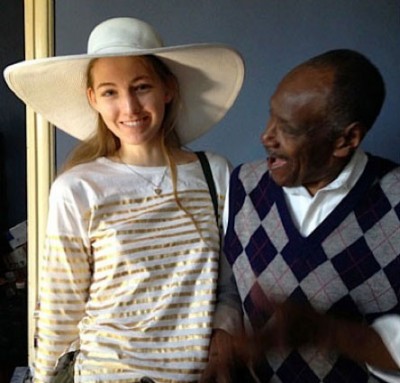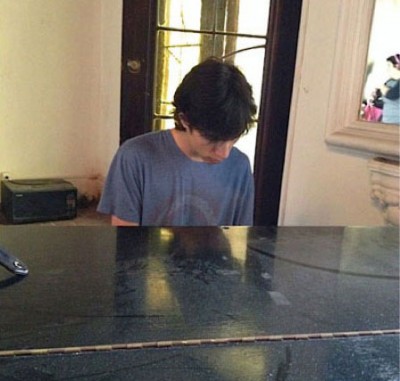In April of 2015, the Oakwood Theatre Department kicked off its 50th Anniversary season with the 12th grade production of Lanford Wilson’s The Hot L Baltimore, a tribute to the true matriarch of Oakwood Theatre, Sabell Bender.
Celebrating 50 Years of Oakwood Theatre
The theatre, evanescent itself, and for all we do perhaps itself disappearing here, seems the ideal place for the representation of the impermanence of our architecture.
Lanford WilsonA galvanizing force in the performing arts, Sabell inspired her students and her colleagues to seize opportunities to face conflict: in her words, “the essence of theatre,” where the student develops greater sensitivity to themselves and to the human condition. She felt that theatre could “give young people the faith to make ‘what is’ better,” and she gave her students the artistic freedom to rise to that challenge.

The Oakwood Theatre Department has never turned its back on difficult issues.
Sabell BenderOver the course of her tenure at Oakwood, Sabell directed scores of hit plays, stirring essential conversations campus-wide, and her 1988 production of The Hot L Baltimore was no exception. In her director’s notes, Sabell writes, “Wilson’s play is a metaphor for the state of his beloved and spiritually beleaguered country. It is a summons to America to rise from the dead. I wanted Oakwood students to hear that summons.”
I had the incredible opportunity to meet Sabell several years ago, and in the time I’ve known her, she’s unequivocally affected my understanding of a theatre arts education. Sabell has a keen sense of effective drama; in her time at Oakwood, she gravitated toward material that placed her students in the center of cultural and ideological discussions; The Hot L Baltimore, a classically structured American three-act play, may seem outdated at first glance, but its uncanny relevance to current events, and its uproariously funny dialogue cuts an unmistakable reflection of America in transition.
‘Everybody wants to live here, kid,’ said Rizzo, whom I came to know as a crazy uncle of sorts. ‘But nobody ever leaves The Carlotta. They stay here 30 or 40 years. Water’s shut off half the time, elevator never works, but they never leave.’
Stinson Carter, Vanity FairDuring the mid-stage of our rehearsal process, we became aware of the Villa Carlotta, a hotel in the heart of Hollywood strikingly similar to the fictional Hotel Baltimore, whose residents (through a barrage of inhumane conditions mirrored in the play) are clinging to their homes—one gentleman in particular has lived there for over forty years. The Vanity Fair article about the Carlotta ignited our class, and in true Oakwood fashion, the students made first contact. Over the last several weeks, the theatre students have toured the hotel, met its residents, walked its halls, and played its grand piano—and what initially began as a character study has quickly bloomed into a deep appreciation for the fight these people face every day of their lives, and we are actively seeking ways to champion these residents’ stories through this production.


What started out as a tribute to Sabell’s iconic work has taken on new significance; we’re celebrating fifty years of “remarkable high school theatre,” and through our collaboration with the residents of the Villa Carlotta we’re honoring the spirit of Sabell’s belief that educational theatre has the power to create real change.


